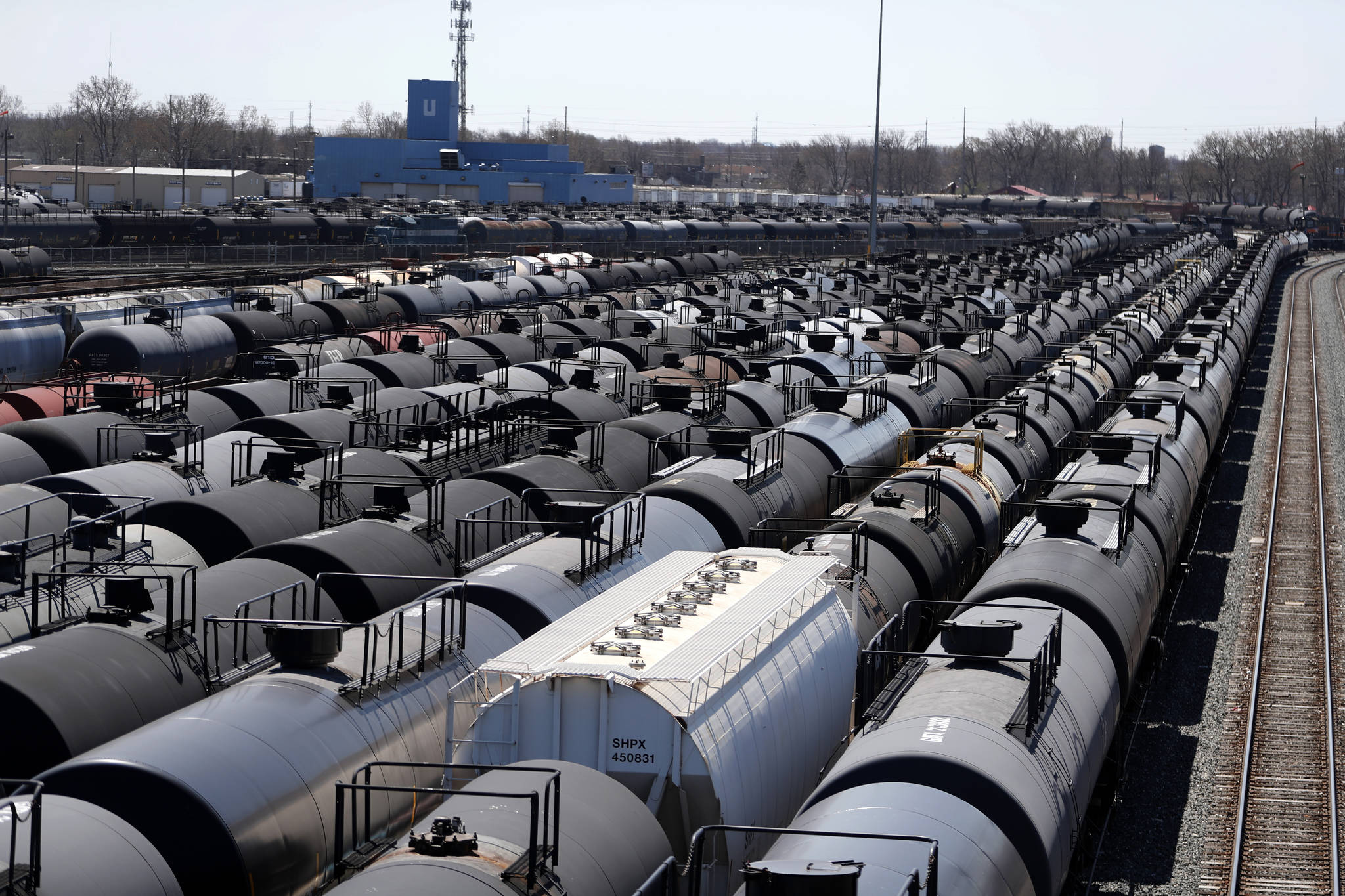A day after the price of oil went negative, a barrel of oil costs less than the average person’s Domino’s Pizza order.
U.S. benchmark crude traded as low as $6.50 a barrel Tuesday, the Associated Press reported, that’s more than 80% lower than the start of the year.
“Demand is down, supply is high,” said Kara Moriarty, president and CEO of the Alaska Oil and Gas Association. “It’s a painful reminder we’re inextricably linked with a global market.”
Even as a global shutdown lowers demand, oil companies are still producing oil, and storage facilities are filling up. According to the AP, some brokers are betting that next month storage will be more valuable than oil and one Oklahoma oil company is weighing paying someone to take some of their product.
That sort of speculation is what helped drive down the price of oil, Moriarty said.
“What we saw (Monday) in the negative price was reflection in the futures (market) and a convergence between lack of demand and storage facilities expected to be full,” she said.
Companies had already seriously curtailed production at their Alaska facilities, Moriarty said, as the global pandemic steadily drove the price of oil down. At the beginning of the year, there were 20 rigs working on the North Slope, she said, now there were only two operating.
But rigs being shut down only means new wells aren’t being drilled, old wells are still producing and workers are still moving oil, and companies are losing money to do it.
Moriarty; however, said she is confident the price of oil will rebound and the global demand for oil will return.
“We don’t think that is a long-term scenario,” she said. “This is a reflection caused by global demand.”
Some oil-producing countries are cutting output to drive up prices, AP reported, but with low demand caused by shelter in place orders it’s unlikely those measures will provide much relief.
The AP also reported the federal government was negotiating with oil companies to store oil in the Strategic Petroleum Reserve, and that a number of tanker ships are full and waiting at sea.
• Contact reporter Peter Segall at psegall@juneauempire.com. Follow him on Twitter at @SegallJnoEmpire.

